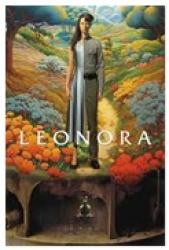
***RECOMMENDED*** You certainly have to hand it to the clever folks at Chicago Opera Theater, especially their forward-thinking General Director Lawrence Edelson, for perfectly timing the North American premiere of the rarely seen Ferdinando Paer opera "Leonora." Edelson, who also serves as the stage director of this production, has waited many years for the chance to present this obscure work to Chicago audiences. When it was announced that Lyric Opera of Chicago would be presenting Ludwig van Beethoven's only opera, "Fidelio," during their 2024/2025 season, Edelson knew that his company needed to act fast to prepare for their own version of the same story. The narrative of this particular opera has been the inspiration of four completely different works, with Beethoven's "Fidelio" being the most well-known. It has been over 20 years since Lyric Opera has produced "Fidelio," so Edelson made sure to schedule performances of COT's "Leonora" during the same timespan so that local opera-lovers could experience both operas during the exact same week. 3 SPOTLIGHTS

Ferdinando Paer composed "Leonora" in 1804, and it premiered later that year in Paris. Beethoven's "Fidelio" dates back to 1805, but the version most often heard today was not completed until a decade later. Beethoven was very aware of the initial success of "Leonora" and was clearly impressed with Paer's work in general. Having seen both "Leonora" and "Fidelio" within days of each other, it was fun to compare and contrast the similarities and differences of both operas.
Librettists Giuseppe Maria Foppa and Giacomo Cinti have created a libretto which starts out very light and focuses on the love triangle between Marcellina (soprano Keely Futterer), the daughter of a prison guard, Giachino (bass Alex Soare), the assistant to the prison guard, and Leonora (soprano Vanessa Becerra), who has disguised herself as a male named Fedele in order to work at the prison. Fearing that her husband, Florestano (tenor Edgardo Rocha) is being held captive as a political prisoner at the jail, Leonora risks her life in order to gain access to the lower depths of the complex where a mysterious prisoner is being slowly starved to death. Could it be her beloved Florestano? Can Leonora fight through the slow-moving wheels of prison bureaucracy in time to save him? Those queries will be answered in a much darker and somewhat cynical Act II.

Both Futterer and Soare dominate the first act, as their playful antics and misdirected flirting take center stage. This is a much brighter and comedic Act I than you will find in "Fidelio." Futterer shines as the young and inexperienced Marcellina. Her voice has an almost lilting quality to it, which Futterer uses to great advantage, especially in moments when she is most annoyed with Giachino and begs him to leave her alone. It is a charming and endearing performance and her strong soprano is on full display. Soare, for his part as Giachino, has a nicely rounded tenor and also turns in a comical and slightly physical performance. His Giachino will not take no for an answer and is ultimately rewarded for his efforts.
While we do not meet Florestano until the beginning of Act II ("Fidelio" has the same narrative structure), it does not hinder the role. Yes, the amount of time spent on stage is much less than many of the other characters portrayed here, but it does not diminish the impact nor significance of the role. Rocha is very powerful, especially because he is enchained during nearly the entire act and limited to a very confined playing area.

But the true star of the show is the Peruvian and Mexican-American soprano in the titular role. Becerra is nothing short of a dynamo. Possessing an impeccable and expansive voice, she is also a very fine actor, especially in her somewhat awkward yet completely believable rendition of the male youth Fedele. Becerra plays both comedy and dramatic moments extremely well and it's utterly impressive the quality and volume of sound that the diminutive frame of this soprano can produce.
Conductor Dame Jane Glover has done a wonderful job with this 34-member orchestra, particularly during the lengthy overture to Act I and during key dramatic moments in the final act. Glover, who gets called in to play the fortepiano during several measures of Paer's melodic score early on, brings great restraint and polish to the entire work.

Scenic Designer Cameron Anderson has fashioned two uniquely different set pieces for each of the two acts presented. Act I feels almost like it could be right out of Mozart's "The Marriage of Figaro." A French manor acts as the outside of the prison, complete with crisp cream-colored walls, a massive two-door entrance, multiple steps from the stage which lead up to a flower garden located on a raised platform, and even a large tree used at one point as a clothesline for drying laundry. This cheerful whimsy disappears in Act II, to be replaced by a very gloomy and almost post-modern depiction of a holding cell. You can almost hear the water trickling down the walls of this cistern-like cave dwelling.
Likewise, Josh Epstein's lighting design is fantastic. The warm glows of golden hues in Act I look lovely against the walls of the manor house and be sure to keep an eye on that tree. It magically transmogrifies into roughly five different shades to suggest changes of time of day. The dingy environs of the prison in Act II are beautifully illuminated by very precise spotlights on the performers at crucial moments. Epstein's use of side lighting is most effective in creating moody atmospherics and plenty of lovely shadows.

Unlike Lyric Opera's production of "Fidelio," COT's budget didn't allow for multiple performance dates for their "Leonora." Sadly, this splendid production had an extremely brief run and closed after only three performances at the historic Studebaker Theater located within the Fine Arts Building.
